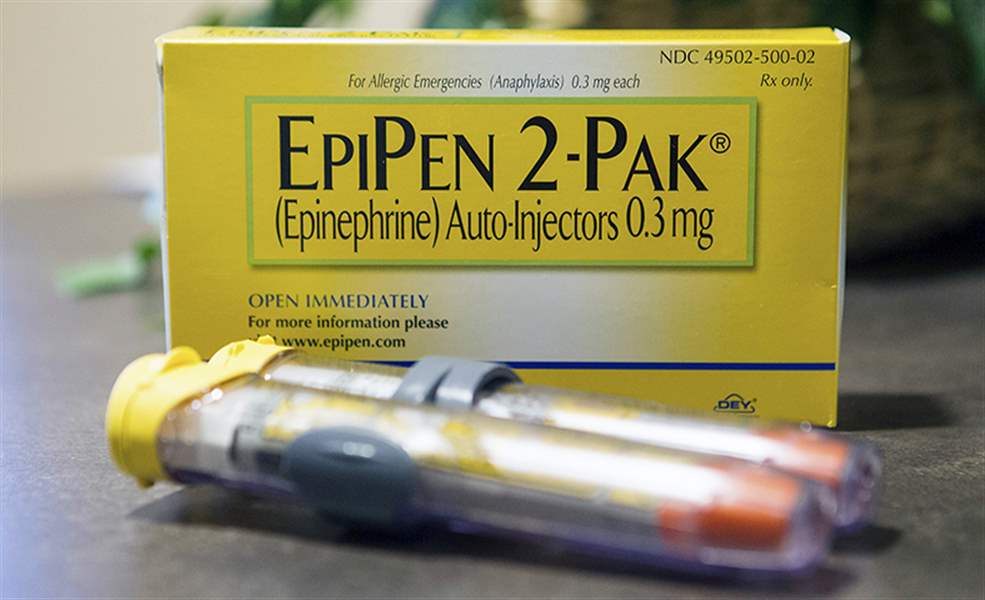
Availability of EpiPens in schools sought
Federal law encourages Ohio, states to update policies
12/4/2013
The EpiPen is an auto-injectable epinephrine device used to treat anaphylaxis caused by allergies. An Ohio bill would allow schools to stock EpiPens for students.
LAS VEGAS REVIEW-JOURNAL

The EpiPen is an auto-injectable epinephrine device used to treat anaphylaxis caused by allergies. An Ohio bill would allow schools to stock EpiPens for students.
School nurses, who are often on the front line when it comes to treating students with severe allergies, may soon have a new tool to fight back.
A set of new laws would make it easier for schools to keep auto-injection devices filled with a medication called epinephrine — often called by the brand-name EpiPen — on hand for all students. Epinephrine is used to slow the onset of anaphylactic shock caused by allergies until the person can get medical treatment.
Currently, only those students with an epinephrine injector prescribed by a doctor are allowed to keep it at school in Ohio, but many people are not aware they have a severe allergy until the moment it happens, said Kate King, the president of the Ohio School Nurses Association.
“Approximately 25 percent of students who experience anaphylaxis were not previously diagnosed with a life-threatening allergy,” said Ms. King. And that number is growing, she said.
U.S. Sen. Sherrod Brown (D., Ohio) held a news conference at McKinley Elementary School on Tuesday to tout a new federal law he cosponsored that uses financial incentives to encourage states to update laws that make it easier for schools to stock epinephrine.
Signed by President Obama last month, the law requires states to take steps to make epinephrine injectors available for everyone in order to qualify for special federal health-care grants. The law stops short, however, of mandating that states stock the devices.
In Ohio, a bill that would loosen the rules and allow schools to maintain a supply of epinephrine without a prescription for any student who may experience life-threatening anaphylactic shock was unanimously passed in the House but likely won't be considered by the Senate until after the holidays.
Mr. Brown said, however, the current bill moving through the Ohio legislature does not go far enough and called on Ohio lawmakers to draft a tougher measure.
“Something like 1 out of 13 children in our country, at some point or another, will have some kind of serious allergic reaction to food they eat or food they ingest or the small particles they might breathe in — that’s the importance of this EpiPen,” Mr. Brown said. “The state legislature is considering weaker legislation that won’t really require it in every school building.”
Jeanette Arnsby, a nurse in Sylvania schools, said she would “love” to see the changes proposed by Mr. Brown.
“Every year we have more and more kids with more and more allergies and more EpiPens,” said Ms. Arnsby, adding that she could not recall any incidents when a student needed an epinephrine injector who had not been previously diagnosed with a severe allergy.
“It’s just one more tool in case there is a serious issue. We hope never to have to use it, but it’s there."
Ann Cipriani, coordinator of health services for Toledo Public Schools, said the district has been monitoring the new laws on both the federal and state level.
“As a district we are going to be in great discussion on what this would look like and what our protocol would be to stock EpiPens,” she said.
Contact Marlene Harris-Taylor at: mtaylor@theblade.com or 419-724-6091.